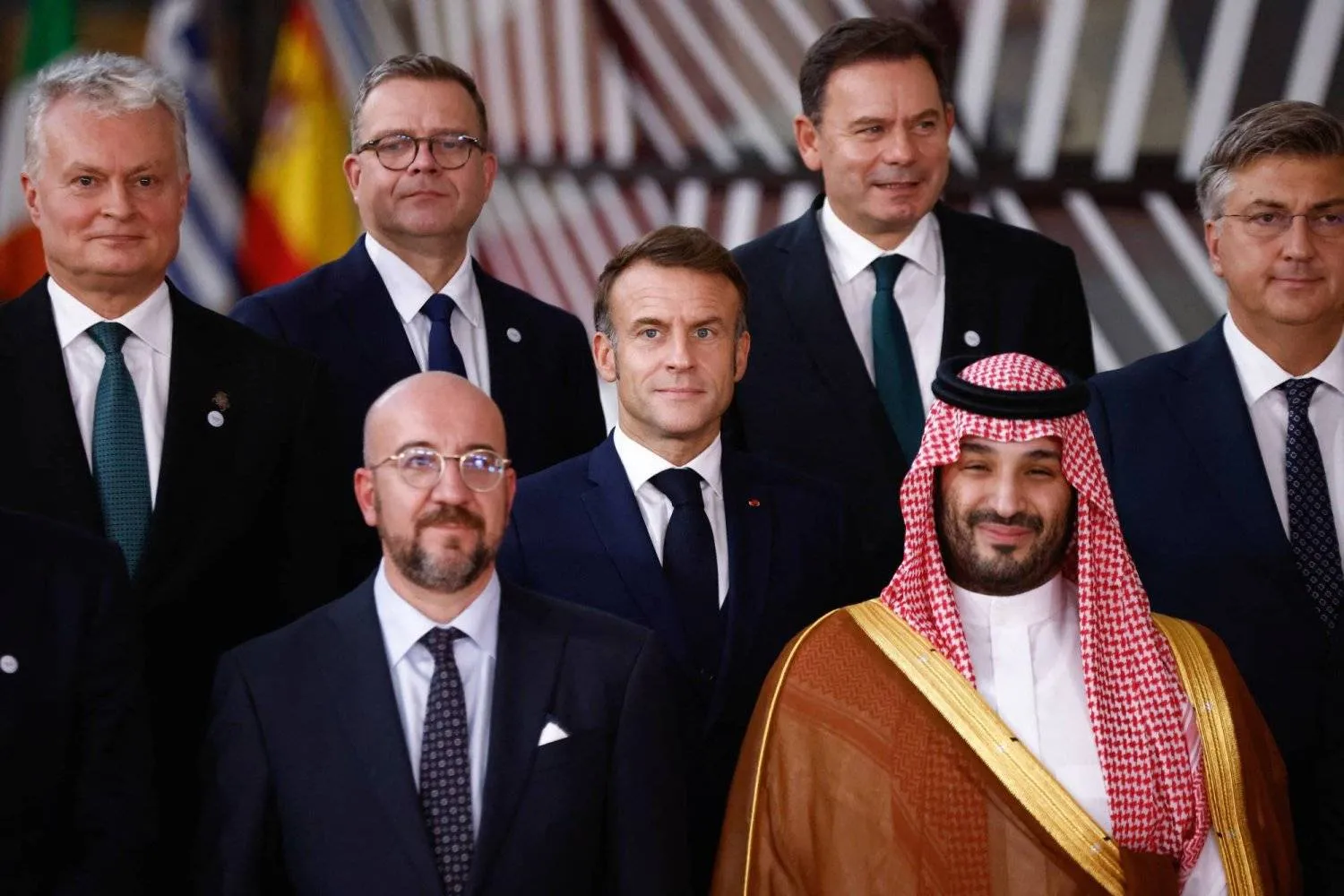The leaders of the European Union and six Gulf nations held an inaugural summit Wednesday, encompassing everything from visas and trade to the situation in the Middle East.
Saudi Crown Prince Mohammed bin Salman was in Brussels for the summit.
A joint statement said the leaders committed to the EU-GCC Strategic Partnership and pledged to elevate it to the next level. “We agree to build our Strategic Partnership, based on mutual respect and trust, for the benefit of the people of our regions and beyond,” it said.
On Gaza, the EU and Gulf leaders called for “an immediate, full and complete ceasefire, the release of hostages, the exchange of the Palestinian prisoners as well as immediate and unimpeded humanitarian access to civilian population, including the safe and effective distribution of humanitarian assistance at scale throughout the Gaza strip to all Palestinian civilians who need it.”
They also reaffirmed their “unwavering commitment to the realization of the right of the Palestinian people to self-determination through the Two-State solution where Israel and Palestine live side by side in peace within secure and recognized borders, along the 1967 lines, consistent with international law and relevant UN resolutions and the 2002 Arab Peace Initiative.”
The leaders expressed deep concern over the Israeli military operations in the West Bank, and called for their immediate end. They also strongly condemned the ongoing extremist settler violence in the West Bank, including East Jerusalem.
On Lebanon, they called for an “immediate ceasefire” and stressed the need to implement Security Council Resolution 1701, which calls on Hezbollah to withdraw to the north of Litani river.
They condemned all attacks against UN missions and expressed particularly “grave concerns” regarding the recent Israeli attacks against peacekeepers in southern Lebanon.
At the summit, Secretary General of the Gulf Cooperation Council (GCC) Jasem Mohamed Albudaiwi said: “Reviving the peace process in the Middle East to fulfil the Palestinian people's aspirations for establishing an independent state with East Jerusalem as its capital, based on the 1967 borders, remains the sole path to achieving security and stability in the region.”
"While we express our deep sorrow and frustration over the atrocities inflicted upon our Palestinian brothers and sisters, we reaffirm the GCC's long-standing position advocating for an immediate and complete cessation of hostilities and the unrestricted entry of humanitarian relief teams” to the Gaza Strip.
“We categorically reject the forced displacement of civilians in Gaza and stress the need to adhere to international law and humanitarian law. This mandates that we take necessary measures to advance collective efforts to halt this war and pressure Israel to permit humanitarian aid to reach the Palestinian people," Albudaiwi said.
He added that the failure to achieve a ceasefire in Gaza has led to escalating tensions in Palestinian territories and a spillover of conflict into Lebanon.
On Iran, the summit’s statement called on the country “to pursue regional de-escalation” and said: "We share a clear determination that Iran must never develop or acquire a nuclear weapon.”
The leaders also demanded that the Iran-backed “Houthis halt attacks against vessels in the Red Sea and Gulf of Aden, release crew and avoid any further escalatory measures that threaten global security and stability.”









